Nano Ontario’s Mission
Our Vision:
- Nano Ontario is a trusted source of information for all nanoscience and nanotechnology activity in Ontario.
- Nano Ontario can advise government organizations on economic opportunity, policy, standards & regulations
that nanotechnology can offer, to enable Ontario to benefit and capitalize from its nano research, development,
and commercial capacity.
Our Objectives:
- Maps Ontario’s capacity in nanotechnology research, development, and commercialization.
- Serve as the main point of contact for Ontario’s community of practice in nanoscience & nanotechnology.
- Builds and facilitates new connections between nanotechnology groups in universities, government
organizations and industries within Ontario, across Canada, and internationally. - Coordinates public outreach activities to advocate the societal benefits enabled by nanoscience and
nanotechnology.
News and Events
Hind Al-Abadleh Nano Ontario Awards
Open to Ontario scientists and researchers, the 2025 Nano Ontario Awards honor Prof. Al-Abadleh, a distinguished Wilfrid Laurier University professor recognized for her impactful work in environmental chemistry, public health, and advocacy for marginalized communities.
Nano Ontario is pleased to launch our annual call for the “Hind Al-Abadleh Nano Ontario Awards” for Ontario scientists and researchers at different stages in their career engaged in nano-related R&D at a university, college or company in Ontario, who self-identify as members of the following equity deserving groups: women, racialized individuals, First Nations, Inuit, and Métis individuals, disabled people, and 2SLGBTQ+, as well as individuals who identify as, or belong to, more than one of these groups.
Prof. Al-Abadleh was a distinguished professor and researcher at Wilfrid Laurier University, Ontario, in environmental and physical chemistry, focusing on critical issues such as air quality, environmental justice, and public health. As a member of Nano Ontario, she championed the need for greater representation of and support for marginalized communities within the physical sciences.
The awards are intended for individuals who have made a significant contribution to basic and applied research in nano-related fields (including but not limited to peer-reviewed publications or equivalent industry reports or patents). For those in academia, the ability to attract external research funding will also be assessed, as well as the ability to promote STEM education and evidence of creating a more diverse, equitable and inclusive training environment.
The awards will be presented at the 2025 Nano Ontario Conference, which will be held in person at Toronto Metropolitan University, Toronto, on July 31 and August 1.
Note that in-person attendance at the conference is strongly encouraged.
| Honorary Award for Outstanding Lifetime Achievements in Nanoscience and Nanotechnology in Ontario | Award for Outstanding Mid-career Achievements in Nanoscience and Nanotechnology in Ontario | Award for Outstanding Early- career Achievements in Nanoscience and Nanotechnology in Ontario | Postdoctoral Award for Achievements in Nanoscience and Nanotechnology in Ontario | |
| Number | 1 | 1 | 1 | 1 |
| Value | An award talk at the conference, a custom glass plaque and a profile feature on the Nano Ontario website | An award talk at the conference, a custom glass plaque and a profile feature on the Nano Ontario website | An award talk at the conference, a custom glass plaque and a profile feature on the Nano Ontario website | An award talk at the conference, a custom glass plaque and a profile feature on the Nano Ontario website |
| Eligibility | Active in the research field over the past 20 years IN CANADA Self-identify as a member of one or more of above-mentioned equity deserving groups | Active in the research field over the past 10-19 years IN CANADA Self-identify as a member of one or more of above-mentioned equity deserving groups | Active in the research field over the past 4-9 years IN CANADA Self-identify as a member of one or more of above-mentioned equity deserving groups | Active in the field of research as a PDF, research associate, technician or senior scientist working with a principal investigator or direct supervisor. The position must have started on or after January 1, 2020, IN CANADA Self-identify as a member of one or more of above-mentioned equity deserving groups |
| Application Material | Nomination by Department/Division Heads, Colleagues or Peers of the candidate. Nomination must include a citation statement (250 word maximum) of why the candidate should receive the award; a link to personal website or CV of the candidate. | Nomination by Department/Division Heads, Colleagues or Peers of the candidate. Self-nominations are accepted. Nomination must include a citation statement (250 word maximum) of why the candidate should receive the award; a link to personal website or CV of the candidate. | Nomination by Department/Division Heads, Colleagues or Peers of the candidate. Self-nominations are accepted. Nomination must include a citation statement (250 word maximum) of why the candidate should receive the award; a link to personal website or CV of the candidate. | Nomination by Department/Division Heads or Supervisor of the candidate. Self- nominations are accepted. Nomination must include a citation statement (250 word maximum) of why the candidate should receive the award; a link to personal website or CV of the candidate; names and contact of 3 referees. |
Restrictions: Current Board Members of Nano Ontario are not eligible to be nominated for an award.
Call for Nominations: March 17, 2025
Due Date for Submissions: April 14, 2025
Where to send Nominations: All nominations are to be submitted via email to awards@nanoontario.ca. Late submissions after the due date will not be evaluated. We thank everyone who applies; however, only those who will receive awards will be notified.
Questions? Feel free to reach out to the Chair of the Awards Committee at Nano Ontario, Professor Arghya Paul,Western University, e-mail: arghya.paul@uwo.ca
Members
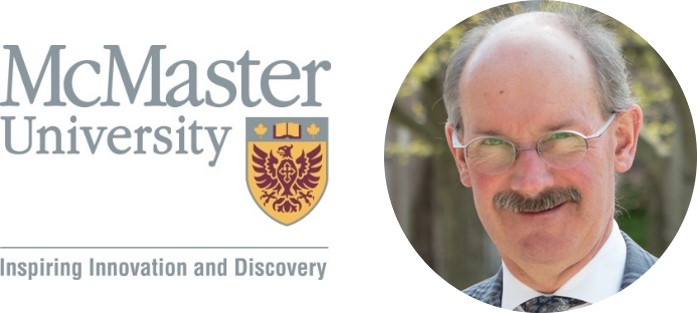
Peter Mascher
Dr. Mascher is the Chair of the Board of Directors of NanoOntario Inc (2023). He obtained a PhD in Engineering Physics in 1984 from the Graz University of Technology in Austria and joined McMaster University in 1989. Dr. Mascher holds the William Sinclair Chair in Optoelectronics and leads active research groups involved in the fabrication and characterization of thin films for optoelectronic applications, the development and application of silicon-based nanostructures, and the characterization of defects in solids by positron annihilation spectroscopy. Dr. Mascher is Vice-Chair of the Dielectric Science and Technology Division of the Electrochemical Society and serves as a Technical Editor for the Journal of Solid-State Science and Technology.

Vladimir Kitaev
Dr. Kitaev is a Chemistry Professor at Wilfrid Laurier University. From his background in polymer and colloid chemistry, Dr. Kitaev’s research focus has been evolved to size- and shape-controlled nanoparticles, their self-assembly and tailored optical properties. His laboratory’s applied projects are currently focused on two main directions: well-defined plasmonic metal nanoparticles (silver and gold) for optical sensing (SPR) and industrial and waste water remediation using nanoparticles and colloidal systems.

Eva Hemmer
Dr. Eva Hemmer is an Associate Professor of Materials Chemistry at the University of Ottawa. She received her PhD (2008) in materials science from Saarland University (Germany) under the mentorship of Prof. Sanjay Mathur. Her PhD work focused on the synthesis of and decomposition of lanthanide-containing inorganic nanomaterials. As a postdoc in Prof. Kohei Soga (Tokyo University of Science, Japan, 2009-2012), she worked on lanthanide-doped nanoparticles for near-infrared bioimaging. She was then awarded a Feodor Lynen Research Postdoctoral Fellowship from the Alexander von Humboldt Foundation to work with Profs. Fiorenzo Vetrone and Francois Légaré at INRS-EMT (Université du Québec) on the development of nanothermometers based on upconverting nanoparticles. In 2016, she moved to Ottawa where she designs and studies novel multifunctional lanthanide-based nanocarriers for biomedical and energy conversion applications. Eva joined the editorial board of Nanoscale and Nanoscale Advances in 2024 as an associate editor.

Gerd Grau
Dr. Grau is an Associate Professor of Electrical Engineering at York University since 2016. He is the Academic Director of the York Microfabrication Facility (YMF). He received his BA and MEng from the University of Cambridge and his PhD from UC Berkeley. His research focuses on additive manufacturing (AM) and printed electronics to fabricate electronics with new geometries and properties, including on flexible substrates and 3D systems. His work spans the study of fundamental printing physics, the development of new printing tools using microfabrication, the optimization of material properties through process innovations, and fabrication of devices such as transistors and sensors.
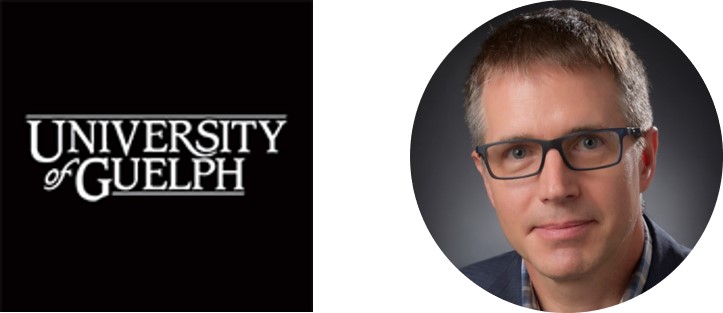
John Dutcher
Dr. Dutcher is a Professor of Physics, Senior Canada Research Chair in Soft Matter and Biological Physics, and Director of the Nanoscience program at the University of Guelph. His research program focuses on the physical properties and applications of novel biological nanoparticles. John is a Fellow of the American Physical Society and serves on the Editorial Board of four journals. He is also a Founder of Mirexus Biotechnologies, a Guelph-based company that that commercializes phytoglycogen nanoparticles derived from sweet corn.

Maria DeRosa
Dr. DeRosa is a Full Professor in the Department of Chemistry at Carleton University and current Dean of Science at Carleton. Her research examines a family of synthetic nucleic acids known as aptamers that can fold into 3D nanoscale structures capable of binding tightly to a specific molecular target. Her group is focused on developing a better understanding of how these systems work and using this information to design useful nanotechnology, such as biosensors, components for nanomedicine, or smart delivery devices.

Stefania Impellizzeri
Dr. Impellizzeri obtained a Ph.D. in Chemistry from the University of Miami in 2012 and did her postdoc in photochemistry at the University of Ottawa. In January 2018, she became Assistant Professor of Chemistry at Ryerson University, where she directs the Laboratory for Nanomaterials & Molecular Plasmonics. Her research has covered different fields, ranging from organic chemistry, to supramolecular chemistry, photochemistry and materials and nanomaterials chemistry. The potential applications of her work include uncovering new strategies in industrial catalysis, writing of data beyond current limits for information technology and memory storage devices, super-resolution imaging tools to probe cell structure and function, and engineering nano-enhanced fibers and textiles.
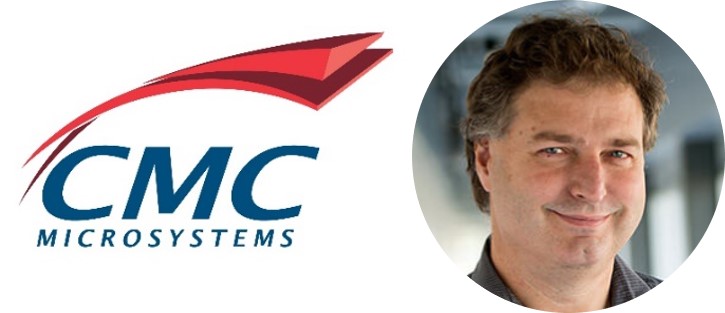
Gordon Harling
Mr. Harling received a Bachelor’s degree in Applied Science from the University of Toronto and a Maitrise en Ingenierie Physique from the Ecole Polytechnique de Montreal. He has worked in Research and Development at large companies such as Mitel, NovAtel, and DALSA. He has been a founder and CEO of several start-up companies including Goal Semiconductor, Elliptic Technologies, and Innotime Technologies. He was Director of Economic Development for ICT and Micro-Nanotechnologioes for Sherbrooke Innopole from 2010 to 2015 and is now the CEO of CMC Microsystems, a not-for-profit which provides software and services to 67 colleges and universities across Canada.

Malcolm Eade
Mr Eade is the CEO and Co-Founder of Spectra Plasmonics, a Kingston based company that develops chemical analysis products based on proprietary SERS technology. The company was founded in 2017 through Queen’s University’s entrepreneurial accelerator program. Malcolm’s academic background is in biomedical sciences where he gained direct research experience with biosensing using SERS. At the company, he has served as the official project manager for its past R&D projects and has been the main liaison with external research partners on collaborative engagements.
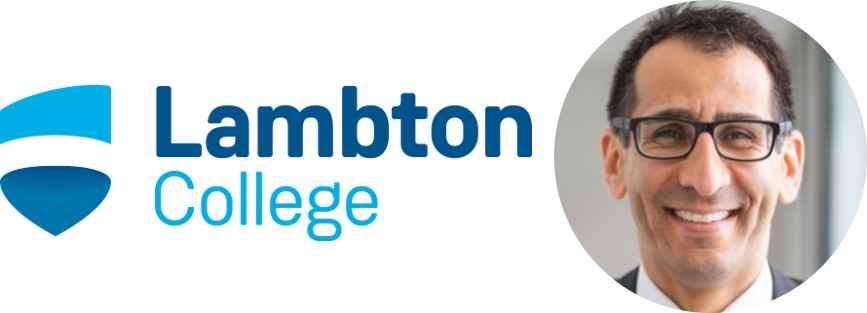
Mehdi Sheikhzadeh
Dr. Mehdi Sheikhzadeh is Vice President, Research & Innovation at Lambton College. He has more than 18 years of extensive background in teaching, research and university administration as well as industrial research and engineering. Dr. Sheikhzadeh obtained his Ph.D. in Chemical Engineering from Western University in London. As a researcher and faculty, his area of research includes process systems, advanced process control, nonlinear modelling, real time optimization, process analysis and design subjects. As research executive, he has been involved in strategic partnership development, project development and research operations management. Dr. Sheikhzadeh is a Board Member for NanoOntario, Canadian Process Control Association, Lambton Manufacturing Innovation Centre and Bio-industrial Process Research Centre.

Arghya Paul
Dr. Arghya Paul Dr. Paul is an Associate Professor in the Department of Chemical & Biochemical Engineering and Department of Chemistry, and Canada Research Chair in Engineered Biomaterials and Nanotherapeutics at the University of Western Ontario. He completed his postdoctoral research training at Harvard-MIT Division of Health Sciences and Technology & Wyss Institute for Biologically Inspired Engineering, Boston. He earned his master’s and PhD in Biomedical Engineering from McGill University. His research focuses on developing mechanically and biologically tunable nanoparticles and nanocomposite hydrogels for tissue engineering and drug delivery applications. For his contributions in science and engineering, he has received several awards and recognitions including the X-Chem Research Excellence Award from Chemical Institute of Canada, Western Research Excellence Awards – Outstanding Scholar, Wolf-Western Fellow, Province of Ontario’s Early Researcher Award and the Royal Society of Canada – College Member

Tricia Carmichael
Tricia Breen Carmichael is a Professor in the Department of Chemistry and Biochemistry at the University of Windsor. She received her Ph.D. in 1996 from the University of Windsor, and then held a postdoctoral position at Harvard University in the lab of George M. Whitesides. She then joined the IBM T.J. Watson Research Center in Yorktown Heights, New York as a Research Staff Member in organic electronics. She currently leads an interdisciplinary research program on stretchable and wearable electronic devices, including stretchable light-emitting devices, textile-based wearable electronics (e-textiles), and stretchable transparent conductors. Dr. Carmichael is also the co-director of the NSERC Green Electronics Network, a national strategic network developing new functional materials and printing methods for smart packaging. Dr. Carmichael holds more than 25 worldwide patents. She is the Editor-in-Chief of the journal Flexible and Printed Electronics (Institute of Physics) and an Editorial Board Member of Matter (Cell Press).

Simon Rondeau-Gagné
Dr. Simon Rondeau-Gagné completed his Ph.D in Chemistry at Université Laval, Québec under the supervision of Prof. Jean-François Morin. From 2014 to 2016, he was a postdoctoral researcher in the Department of Chemical Engineering at Stanford University in the lab of Prof. Zhenan Bao. He joined the Department of Chemistry and Biochemistry at the University of Windsor in 2016 as an Assistant Professor of materials chemistry, and was appointed to the rank
of Associate Professor in 2021. His research group focuses its research on the development and synthesis of new materials for the next generation of electronic devices. The R.-G. group possesses a broad expertise that covers the entire spectra of materials chemistry from materials design and synthesis to device fabrication and optimization.

Ruby Sullan
Prof. Sullan is an Associate Professor at the University of Toronto Scarborough, where she leads the Nano-Bio Interactions Lab. Her research focuses on developing advanced nanomaterial platforms for biomedical and agricultural applications, with a strong emphasis on understanding interactions between nanomaterials and bacterial biofilms. Dr. Sullan earned her BSc in Chemistry from the University of the Philippines and her PhD in Chemistry from the University of Toronto. She has conducted research at the National Research Council Canada, JILA at the University of Colorado-Boulder, Catholic University of Louvain, and at the Max Planck Institute of Colloids and Interfaces. A member of the UTSC faculty since 2017, she was was named a Cottrell Scholar by the Research Corporation for Science Advancement in 2021.

Norman Zhou
Norman Zhou is a professor and Canada Research Chair (Tier I) in Advanced Materials Joining and Processing in the Department of Mechanical and Mechatronics Engineering, University of Waterloo, Canada. His expertise lies in the areas of advanced welding and joining technologies, and nanomaterials and nanodevices such as self-powered IoT sensors for water leak detection. Norman is currently leading a group of more than 20 graduate students, postdoctoral fellows, and other researchers. Prof. Zhou is a fellow of CAE, AWS and ASM. He has authored and co-authored more than 450 peer-reviewed papers and several books and is co-founder of two university spinoffs (smarteralloys.com, aquasensing.com).
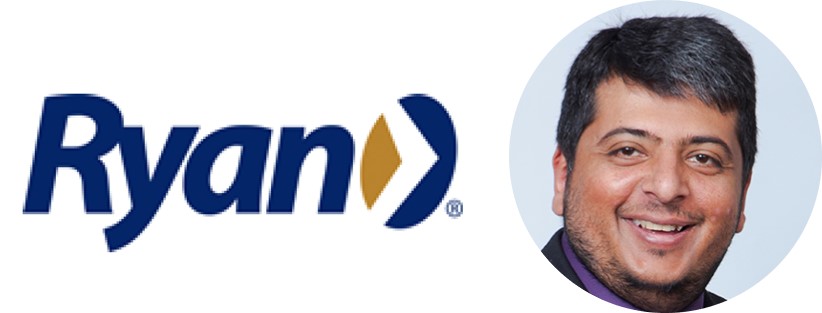
Mohamed Parpia
Mr. Parpia majored in Chemistry and minored in Physics and Mathematics from Linfield College in 2003. He completed his M.Sc in Chemistry from Northwestern University in 2006. Since graduation, Mohamed has undertaken research in the fields of nanolithography, microfluidics, biodiagnostics and medical devices. Mohamed Parpia is a SR&ED technical expert with over 10 years of experience. He uses his broad science background and curiosity to probe the activities of his clients to reveal all SR&ED opportunities. Using a “client-first” approach, Mohamed builds strong working relationships that result in added value for Ryan’s clients. At Ryan, Mohamed is a Director on the SR&ED team. Mohamed’s adaptability and ability to integrate his skills and science background allow him to prepare claims in a variety of industries such as such as nanotechnology, chemical manufacturing, bio-technology, oil & gas, food, pharmaceutical and energy amongst others.

Sushanta Mitra
Dr. Mitra is the Executive Director of Canada’s largest nanotechnology institute – the Waterloo Institute for Nanotechnology (WIN). He is also a Professor in Mechanical & Mechatronics Engineering at the University of Waterloo. His research interests are in the fundamental understanding of fluid transport in micro and nano-scale confinements with applications in energy, water and bio-system. For his contributions in science and engineering, he has been an elected fellow of number of key scientific organizations including the Canadian Academy of Engineering, the Royal Society of Chemistry, the American Physical Society and AAAS. He is also the recipient of 2015 Engineering Excellence Medal.
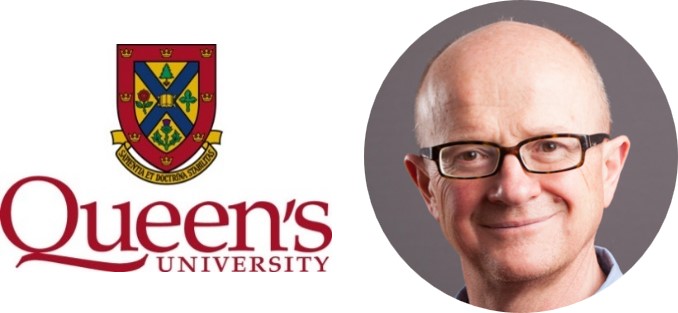
Jean-Michel Nunzi
Jean-Michel Nunzi graduated from l’Ecole de Physique et Chime, Paris in 1982, he joined l’Ecole Polytechnique for a PhD on the nonlinear optics of surface plasma waves (plasmons). He was then hired as full-time Researcher in Organic Photonics at the Atomic Energy Commission (Saclay) in 1984. He joined the Department of Physics at the University of Angers as Professor in 2000, where he built the Plastic Solar Cells Technology Research Team. He moved to Queen’s University as Tier 1 Canada Research Chair in Chiral Photonics in 2006 and in Photonics for Life since 2013. He studies Self-organization, Organic and nano-Photonics, including the Chemistry, Instrumentation, Processing and Physics of nanomaterials and devices as well as their use for life, energy and sustainable development.

Linda Johnston
Dr Johnston is Linda Johnston is currently a researcher emerita with the Metrology Research Centre of the National Research Council Canada (NRC). Her research interests focus on the characterization of nanomaterials, specifically development and standardization of (1) methods to characterize cellulose nanomaterials and (2) methods that can be used to quantify surface functional groups on nanomaterials. She has worked with a variety of standards organizations during the last decade, leading 4 projects at ISO technical committee 229 – Nanotechnology, organizing 3 interlaboratory comparisons and participating in several OECD projects. She is currently Secretary of the Division of Chemistry and Human Health of IUPAC and has contributed to a number of IUPAC projects related to nanotechnology and risk assessment.

Kazim Agha
Dr. Kazim Agha (PhD in Chemistry) is partner and patent agent at Ridout & Maybee LLP. Kazim is a Director of Local Sections of the Chemical Institute of Canada (CIC), and sits (as a Director) on the Board of Directors of the Chemical Society of Canada (CSC). He is also engaged with the American Chemical Society (ACS), presenting on intellectual property (IP) and as Chair-Elect of the Small Chemical Business Division (SCHB) of the ACS, providing support and guidance to small and medium sized chemical businesses. On the intellectual property side, Kazim regularly presents and teaches on IP, particularly patents, and is Chair of the Patent Agent Training Committee (PATC) of the Intellectual Property Institute of Canada (IPIC) and a member of the Standing Advisory Committee before the European Patent Office (SACEPO).

Ari Forman
Ari Forman is from Thornhill, Ontario. He has completed a B.Sc. (Honors) in Genetics at Western University. His honors thesis is seeking to detect a methylated CpG island in the GSTP1 gene implicated in prostate and breast cancers using Raman spectroscopy and multivariate techniques. Together with Alex Boukin, he founded SCATR, a company that develops and uses Raman spectroscopy and machine learning to detect dangerous opioids such as fentanyl and fentanyl analogs.

Lora Field
Lora Field has been working with Ontario’s cleantech and various manufacturing sectors at the Ontario Ministry of Economic Development, Job Creation and Trade for over twelve years. Based on her in-depth knowledge of Ontario’s cleantech sector and relevant government policy drivers, she engages with foreign and Ontario based companies to assist their growth in the province. Lora also works closely with partner ministries, on industry-relevant initiatives, including Ontario’s upcoming Low-Carbon Hydrogen Strategy. She has a PhD in chemistry and is currently a Board Member of the Waterloo Institute of Nanotechnology.

Jeffrey Carson
Dr. Jeffrey Carson is passionate about solving complex optical imaging problems. He co-developed multispectral filter array technology used in snapshot multispectral cameras and co-founded Spectral Devices Inc to commercialize the technology. Spectral Devices manufactures and distributes camera products to universities and companies throughout the world. In his academic work, Dr. Carson led the development of intraoperative photoacoustic tomography, a technology capable of guiding breast cancer surgery and reducing the need for call back surgeries. He is currently developing a next generation photoacoustic imaging technology that rapidly captures 3D breast images without touching the patient

Stéphane Gagné
Mr Stéphane Gagné cumulates 25 years of experience in the fields of cosmetics, nutritional supplements, pharmaceutical products and active ingredients. He holds two bachelor’s degrees, one in economics, the other is multidisciplinary, as well as a master’s in business administration. Mr. Gagné played a significant role in the growth of several Canadian companies abroad through his international network of contacts and business acumen. He held senior positions in biotech, cosmetic and supplement companies, one being Atrium Innovations where he was VP Sales & Marketing from its inception in 1999. Atrium was later acquired by Nestlé in 2017 for 2.3 billion USD. Mr. Gagné is now the co-founder, President and CEO of Ovensa Inc., a private company that has developed a nanomedicine delivery platform focusing on fighting tough-to-treat diseases such as cancer and dementia.

Adam MacIntosh
Adam MacIntosh graduated from the chemistry program at Western University and earned a Ph.D. in physical chemistry from McMaster University in the group of Prof. Gillian Goward. He worked as a post-doctoral fellow at Ballard Power Systems in Burnaby, BC, supervised by Prof. Erik Kjeang at Simon Fraser University, where he developed solid-state NMR methods for measuring inter-material interactions in advanced hydrogen fuel cell materials. He briefly returned to McMaster in 2018 to lecture and manage the 1st year undergraduate chemistry courses/laboratories, and joined Zentek as a research associate in 2021, shortly thereafter being promoted to Director of Research and Development. His primary responsibilities include the evaluation, initiation, and management of internal and external research projects, systems planning and scientific support for operations and quality control, liaison with government and private funding agencies, and industrial health and safety.

Jesse Greener
Jesse Greener graduated from the Chemical Physics program at the University of Waterloo and obtained a Ph.D. in surface science from department of Physics at the University of Western Ontario. Jesse held a post-doctoral fellowship in the department of Chemistry at the University of Toronto where he focused on microfluidic reactor technology and measurement platforms. Before leaving Toronto, Jesse co-founded and is the current CEO for FlowJEM Microfluidics, a Toronto-based microfluidics foundry which specializes in custom prototyping in polymer-based materials. Jesse joined the department of Chemistry at Laval University in May 2012. He has been an associate professor since 2017, where he leads an active research group in analytical microfluidics and biomaterials. He is the winner of the 2013 New Researcher Award from Quebec’s science and technology agency, a 2018 high risk/high reward Audace grant for his work in the area microfluidics and microbiology, and a 2020 Discovery Grant Accelerator for original and innovative research.
Twitter Feed

A trusted source of information for all nanoscience and nanotechnology activity in Ontario.









